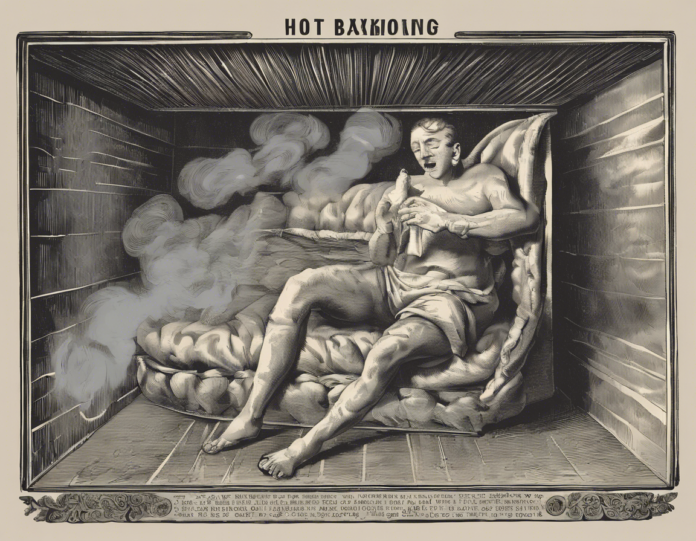Hot boxing is a term that has gained popularity in recent years, particularly within youth culture and the cannabis community. It refers to the practice of smoking marijuana in an enclosed space, such as a car or small room, with the windows and doors fully closed. This creates a situation where the smoke becomes trapped in the space, leading to an increase in the concentration of the smoke and its effects on those inside. While some view hot boxing as a recreational activity or a way to enhance the effects of marijuana, others have raised concerns about the potential health risks and legal implications associated with this practice.
In this comprehensive guide, we will delve into the meaning of hot boxing, its cultural significance, potential risks and benefits, and the legal considerations that individuals should be aware of. We will also explore alternative methods of cannabis consumption that may offer a safer and more controlled experience. Let’s uncover the ins and outs of hot boxing and shed light on this widely debated practice.
What is Hot Boxing?
Hot boxing is a term that originated in the cannabis community and is used to describe the act of smoking marijuana in a small, enclosed space with limited ventilation. The practice typically involves a group of individuals gathering inside a car, bathroom, or other confined area and smoking marijuana while preventing the smoke from escaping by sealing off any openings, such as windows, doors, or vents.
The lack of ventilation in the enclosed space causes the smoke to linger in the air for an extended period, allowing individuals to inhale higher concentrations of the psychoactive compounds found in marijuana. This often results in a more intense and immediate high compared to smoking in a well-ventilated area.
The Cultural Significance of Hot Boxing
Hot boxing holds cultural significance for many individuals, particularly among younger generations and within certain subcultures. It is often seen as a social activity that fosters a sense of community and camaraderie among those participating. The shared experience of being in close quarters, surrounded by marijuana smoke, can create a bonding experience and a feeling of connectedness among participants.
Additionally, hot boxing is sometimes romanticized in popular media, music, and film, further perpetuating its appeal among certain groups. It is portrayed as a rebellious and hedonistic act that is associated with countercultural movements and notions of freedom and nonconformity.
Risks and Benefits of Hot Boxing
Risks:
-
Health Concerns: One of the primary risks associated with hot boxing is the potential harm to individuals’ health due to prolonged exposure to high concentrations of smoke and toxic compounds. This can irritate the respiratory system, leading to coughing, wheezing, and shortness of breath, particularly for individuals with preexisting respiratory conditions.
-
Impaired Driving: Hot boxing in a car can impair individuals’ cognitive and motor functions, increasing the risk of accidents and impaired driving abilities. The psychoactive effects of marijuana can impact judgment, coordination, and reaction times, posing a danger to both the individuals inside the vehicle and others on the road.
-
Legal Implications: In many jurisdictions, hot boxing in a car or any enclosed space is considered illegal, as it violates laws related to public consumption of marijuana, impaired driving, and smoking in restricted areas. Individuals caught engaging in hot boxing may face fines, legal repercussions, and damage to their reputation.
Benefits:
-
Enhanced Experience: Some individuals believe that hot boxing intensifies the effects of marijuana, leading to a more potent and immersive experience. The heightened concentration of smoke in the enclosed space can create a sensory overload that enhances the taste, smell, and overall high associated with marijuana consumption.
-
Social Bonding: Hot boxing is often done in a social setting, allowing friends to come together, relax, and enjoy each other’s company in a unique and intimate environment. The shared experience of hot boxing can strengthen social bonds and create lasting memories for those involved.
Legal Considerations of Hot Boxing
It is essential for individuals to be aware of the legal implications of hot boxing, as engaging in this practice can lead to serious consequences depending on the jurisdiction. In many regions where marijuana is legalized for recreational or medicinal use, there are strict regulations governing its consumption, particularly in public spaces and enclosed areas.
Hot boxing in a car, for example, can result in charges of driving under the influence (DUI) if individuals are caught operating a vehicle while impaired by marijuana. This can lead to fines, license suspension, and even jail time, depending on the severity of the offense and the individual’s prior record.
Additionally, hot boxing in rental properties, public facilities, or other restricted areas can violate smoke-free policies and lead to fines or legal action by property owners or law enforcement. It is essential to familiarize oneself with local laws and regulations regarding marijuana consumption to avoid legal repercussions and ensure responsible and compliant behavior.
Safer Alternatives to Hot Boxing
While hot boxing may hold appeal for some individuals seeking an intense and communal marijuana experience, there are alternative methods of cannabis consumption that offer a safer and more controlled environment. These methods allow individuals to enjoy the effects of marijuana without compromising their health, safety, or legal standing.
Alternative Methods:
-
Vaporization: Vaporizing marijuana involves heating the plant material or concentrates to a temperature that releases the active compounds without combustion, producing a vapor that can be inhaled. This method reduces the harmful byproducts associated with smoke inhalation and offers a cleaner and more discreet way to consume cannabis.
-
Edibles: Edible cannabis products, such as gummies, chocolates, or infused beverages, provide a convenient and long-lasting way to experience the effects of marijuana without smoking. Edibles are metabolized differently in the body, leading to a slower onset of effects but prolonged duration compared to smoking.
-
Topicals: Cannabis-infused topicals, such as lotions, balms, and oils, are applied to the skin and absorbed for localized relief of pain, inflammation, or skin conditions. These products do not produce psychoactive effects when used topically and are suitable for individuals seeking therapeutic benefits without the high.
Exploring these alternative methods of cannabis consumption can broaden individuals’ options and allow them to tailor their experience to their preferences, whether they prioritize convenience, discretion, or health and safety.
Frequently Asked Questions (FAQs)
1. Is hot boxing illegal?
Hot boxing in enclosed spaces, particularly in vehicles, can be illegal in many jurisdictions due to laws regulating public consumption of marijuana and impaired driving. Individuals should familiarize themselves with local laws to avoid legal consequences.
2. What are the health risks of hot boxing?
Prolonged exposure to high concentrations of marijuana smoke in a hot boxing session can irritate the respiratory system, leading to coughing, wheezing, and other respiratory issues. Individuals with preexisting conditions may be more susceptible to these health risks.
3. Can hot boxing lead to impaired driving?
Hot boxing in a car can impair individuals’ cognitive and motor functions, potentially leading to impaired driving abilities. The psychoactive effects of marijuana can affect judgment, coordination, and reaction times, increasing the risk of accidents.
4. How can I enjoy marijuana responsibly?
To enjoy marijuana responsibly, individuals can opt for alternative consumption methods, such as vaporization, edibles, or topicals, that offer a safer and more controlled experience. It is essential to understand the legal implications of marijuana consumption and prioritize health and safety.
5. What are the social benefits of hot boxing?
Hot boxing is often done in a social setting, allowing friends to bond, relax, and share a unique experience. The communal aspect of hot boxing can strengthen friendships and create lasting memories for those involved.
6. Is hot boxing suitable for everyone?
Hot boxing may not be suitable for individuals with respiratory conditions, sensitivity to smoke, or those seeking a milder marijuana experience. It is essential to consider individual preferences and health considerations before engaging in hot boxing or any form of cannabis consumption.
7. What are the long-term effects of hot boxing?
Long-term effects of hot boxing may include respiratory issues, decreased lung function, and potential addiction or dependence on marijuana. Individuals who engage in hot boxing regularly may be at higher risk for these health consequences and should monitor their usage accordingly.
8. Can hot boxing be done safely?
While hot boxing poses inherent risks due to high concentrations of smoke and limited ventilation, individuals can mitigate some of these risks by choosing well-ventilated spaces, taking breaks for fresh air, and being mindful of individuals’ comfort levels and health concerns.
9. How can I educate others about the risks of hot boxing?
Educating others about the risks of hot boxing involves discussing the potential health consequences, legal implications, and safer alternatives to this practice. Encouraging open and honest conversations about responsible cannabis consumption can help raise awareness and promote safer habits.
10. Are there community resources available for individuals struggling with marijuana use?
For individuals experiencing challenges with marijuana use, there are community resources, support groups, and counseling services available to provide guidance, information, and assistance. Seeking help from healthcare professionals or addiction specialists can support individuals in making informed decisions about their cannabis consumption and overall well-being.
In conclusion, hot boxing is a practice that carries both risks and benefits, depending on individuals’ preferences, circumstances, and awareness of health, safety, and legal considerations. By exploring alternative methods of cannabis consumption, understanding local laws and regulations, and prioritizing responsible behavior, individuals can enjoy marijuana in a manner that suits their needs and values. Clear communication, informed decision-making, and a commitment to well-being can guide individuals toward a positive and fulfilling relationship with cannabis, free from unnecessary harm or legal complications.








